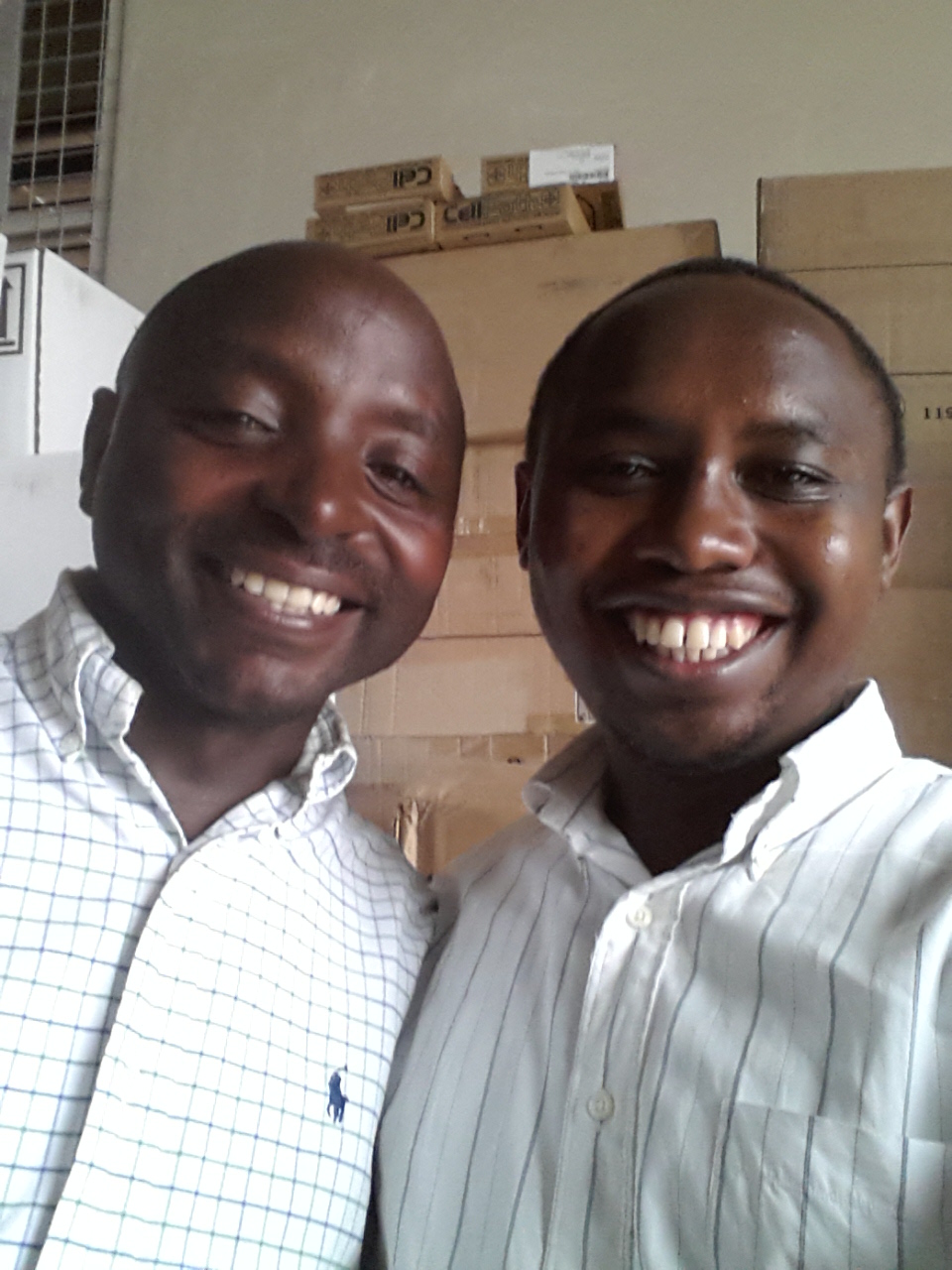I was sad the day I heard that I, my co-fellow, and the other GHC fellows placed at Partners In Health (PIH) would not have our orientation sessions at the PIH headquarters in Boston, but instead would have an on-site orientation. I was very eager to know more about PIH’s mission, values and its working model, and I was expecting to get those all from the Senior Officers and then move to sites with a full package of knowledge and skills for making change. I was surprised and happy to realize that the lower-level staff members were actually better able to provide us with a great orientation to the real practices of the organization on-site than those at the PIH headquarters would have.
From our arrival at Kigali International Airport to the following day at the PIH Office in Kigali, and our first visit to Butaro then Rwinkwavu, there was someone to explain everything and introduce us to everyone we met. We worked a few days with outgoing fellows and met the District Clinical Directors, senior leadership of IMB (“Inshuti Mu Buzima” – Partners In Health in Kinyarwanda is PIH Rwanda’s sister organization) and on-site staff. One of those lower-level staff members I met who helped me a lot is Cyprien Safari.

Safari is in his 8th year working for PIH as a Warehouse Coordinator. With his English mostly mixed with Kinyarwanda words and many jokes, Safari explained and helped me understand the PIH mission, values and its fight for social justice. One day he was showing me what they do in the warehouse and suddenly he told me, “Hervé, you need to know that here at PIH whatever it takes, we fight for social justice.” I immediately asked him to explain this to me because I didn’t understand. He laughed and replied in Kinyarwanda, “I know you are a GHC fellow if you don’t understand what I mean, ask me another day.” Then he continued explaining his role in pharmacy supply chain and the logistic cycle. This made me more curious to hear what a low level staff member would explain to me about social justice.
The following day, I moved to the warehouse to ask Safari the meaning of the phrase. I found Safari sitting on the rolling stool and working on his computer. I told him that I had come to learn from him about social justice. He looked at me, smiled and said, “Bring me that sheet and I will explain what social justice is and how we always fight for it.” Safari can’t explain anything to you without using charts drawn on paper or a white board. He wrote down the following 4 words and encircled them: healthcare, medications, food, and education.
He started with healthcare by telling me: “PIH has chosen its catchment areas in regions where the local population was underserved and we are now ensuring that everyone gets excellent healthcare services no matter who or where he/she is, whatever it takes because we believe health is a human right”. I liked the way Safari feels ownership of PIH activities by saying “we”. It was my first to hear such faith and I was impressed by Safari’s dedication to PIH mission and values. I felt motivated to contribute to that cause.
Safari continued with medications where he emphasized on the availability of medicines in Health Facilities. He affirmed, “You can’t understand how a simple stock out of Salbutamol spray weakens the patient with an asthma attack until you see him coming to the health center missing the medication.” Then he insisted, “As a GHC fellow and pharmacist you need to help us prevent such situations.”
He moved to the other two remaining words and explained me that food and education related programs in PIH all work for the population’s development and they contribute to the achievement of health equity. After these explanations, I can now understand what I’m called to do.
Two weeks later we were honored to receive the Executive Director and Co-Founder of PIH, Ophelia Dahl, who came to visit IMB community. During the meet-and-greet breakfast with the entire Rwinkwavu-based IMB staff, I asked her the question I asked Safari about the philosophy behind the adage “Whatever it takes, we fight for social justice.” She gave me the answer that came to complete Safari’s inputs.
She told us that they decided to use this saying as self-motivation when they started PIH. “At that time, we were seeing huge challenges to achieve health equity and social justice. This adage helped us a lot and is continuing to do so, as we still have to fight health inequities and social injustice in our communities” she shared.
Since then, I have become inspired and motivated to work better on my program and collaboratively with other IMB staff to improve communities’ access to excellent healthcare services. I now believe that whatever it takes, I’ll always fight for social justice and health equity.
